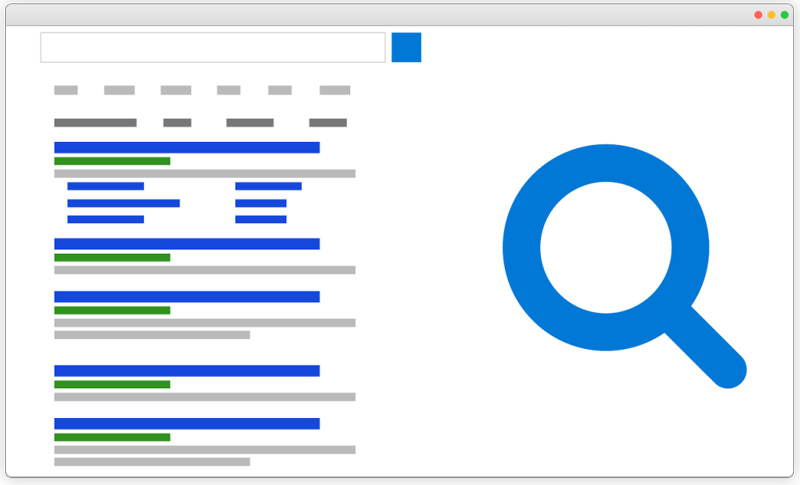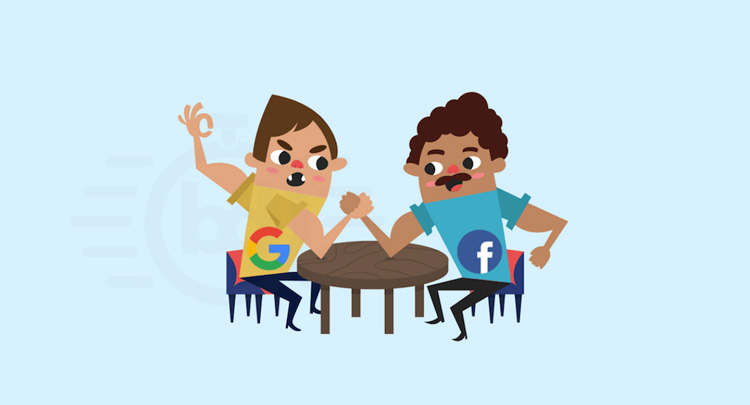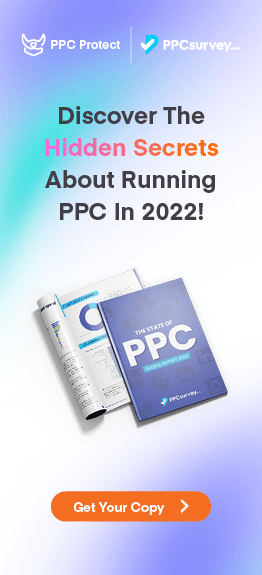Since the rise of the internet, online advertising has helped transform many businesses by providing them with a never-ending stream of high-quality traffic.
Although online advertising is nothing new for most people, in recent years there have been some drastic changes in how companies can advertise online. No longer are simple banner ads the go-to medium.
Instead, the growing popularity of social media networks and search engines have spawned plenty of new opportunities for advertisers to take advantage of.
Known as paid search and paid social, these two advertising models are used by thousands of businesses out there to direct highly targeted traffic to their websites. But to beginner marketers, these two models can look incredibly similar which often raises the question:
Which should I be using?
To help you understand the differences between the two and decide which is worth your money, we’re taking a look at the pros and cons of each. By the end of this article not only will you have a firm understanding of how both work, but you’ll also know which one is the right fit for you.
What Is Paid Search?

Paid search is one of the oldest advertising strategies out there and has been around since the early 2000s. Made popular by the likes of Google and their Google AdWords network, over 95 billion dollars is spent on paid search every single year.
And, based on current statistics, that number is only expected to increase as more and more business take advantage of online advertising.
The basis of paid search revolves around an advertiser paying a search engine to promote its website to particular users. Specific users can be targeted by the keyword that they search for and the location of the user.
Combining these targeting options allows advertisers to target their ideal demographic much easier than they’ve been able to in the past. This, in turn, helps them get much better results for their spend.
Considering Google receives over 42 billion visits a month from almost every single country in the world, it’s easy to see why paid search is so popular. No matter what industry or business you’re in, there’s plenty of traffic up for grabs.
The ads themselves on these platforms often follow strict guidelines and only allow text-only ads that blend into the search engine results. Compared to traditional banner advertising, these can seem very dull which is not really what advertisers want. However, the results say otherwise.
Considering billions are spent every year on AdWords, it’s clear that advertisers are getting a solid return from it.
What Is Paid Social?

A new advertising strategy on the block which is attracting the attention of advertisers everywhere goes by the name of paid social.
Fuelled by gigantic online social media websites such as Facebook and Instagram, paid social is a new type of advertising that allows advertisers to target specific individuals based on their likes.
Instead of targeting users based on a particular word or phrase, advertisers can target users based on their gender, age, likes, and interests to name a few.
Considering Facebook and Instagram have over 3 billion users combined and over 24 billion monthly visits, it’s clear to see why advertisers are so excited about the growth of paid search.
Unlike the text-only ads which are usually seen on paid search, social media advertising allows advertisers to display visual ads which vastly help improve the click rate and interaction from users. In fact, advertisers also have the option to allow users to comment and like their ads, just as they would interact with non-paid content.
It’s this level of interaction from users which makes paid social so different from other advertising models.
In addition to allowing users to interact with the advert, these ads also blend in nicely with organic content making them less intrusive to the end-user.
In an already ad-heavy world, not bombarding users with ads at every opportunity is definitely a good thing. Although there have been various fights with ad-blocking plugins in the past, for now, paid social has come out on top.
What Are The Differences Between Paid and Social Search?

To many new marketers, paid social and paid search might sound very similar, but this couldn’t be further from the truth. Both of these advertising models excel in different areas, so understanding which is better for a certain niche or industry is essential.
The most noticeable differences between the two models are that paid search is best for targeting users who already know what they want. If a user is searching to buy a product in Google and your advert appears at the top, then they’re probably going to click it. Most users who already know what they want will likely be searching for different businesses that sell the same item to compare prices.
Compare this to paid social, and users are much more likely to be impulse buyers who aren’t necessarily looking for anything in particular to buy. But if they happen to see something they are interested in while browsing social media, then they might be inclined to buy it.
This subtle difference can often have a huge impact on the success of the advertising method in a particular niche or industry.
To summarize the differences between paid search and paid social, we asked two industry experts for their input:
“Paid search is perfect for guaranteed, high conversion traffic from people looking for exactly the product/service you’re offering. In our case as an equity release broker, we want to target customers actively looking for our financial services. Paid search gives us the ability to maximise our brand’s visibility in the extremely competitive niche of finance. The impulse nature of paid social, whilst an important marketing channel for any business, has a much broader audience.”
Jonny Crossley, Search Manager at Key
“With Google ads, a lot of the time you get comparison shoppers. Whereas with Facebook, you get impulse shoppers. That allows you to sell products at a much higher price point if you work on other factors such as storytelling etc.”
Jacky Chou from Indexsy
With that in mind, it’s clear that your product or service has a big impact on which of the two you should be using.
Declaring The Winner

If you haven’t realised by now, then we’re sorry to get your hopes up, but there isn’t actually an outright winner.
As a keen marketer, you should be asking yourself:
Which is the best advertising channel to reach my target audience?
This obviously depends on what your business does and how your audience interacts online. For some businesses, paid search will be the clear winner, while for other businesses, it will be paid social instead.
The most important thing is to understand your customer’s journey and where you’re most likely prospects will be hanging out.
If you’re selling trainers or apparel, then it’s very unlikely that people will know exactly what they are looking for. Instead, they’ll probably be browsing to see what stands out to them.
In this example, running paid social is probably the better option as it allows advertisers to use visual images and target trainer fans. Whereas in other circumstances for items such as washing machines, using paid search would probably be better.
A good way to see which advertising channel competitors in your niche are using is to head on over to SpyFu and type in the domain. This will tell you if they’re running paid search ads, what keywords they are targeting, and how much they are spending.
To check if they are running paid social ads, you’ll want to visit Facebook and check their business page for ads.
If they’re spending more money on a certain advertising channel, then the chances are that channel is profitable for them. Why waste time and money finding out which works when you can just piggyback off their research?
Get More From Your Paid Search Campaigns
If you do end up deciding to run paid ads for your business or client, then be cautious, your competitors won’t be happy with more competition in the market.
It’s pretty standard that your competitors will target your ads and fraudulently click them, making you waste as much money as possible. The sooner they waste your budget, the sooner they’ll have less competition.
The good news is, it doesn’t have to be like this.
With Lunio, you can stop competitors from clicking your ads and throwing away your precious ad budget. Not only do we protect you from angry competitors, but we also block any automated bots and fraud rings from cashing in on your ad spend.
To see how much you can save with Lunio, sign up to our free 14-day trial below.


